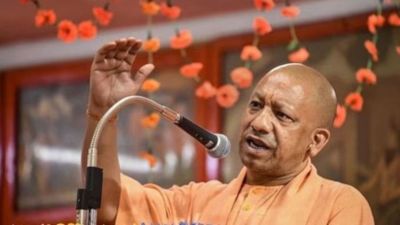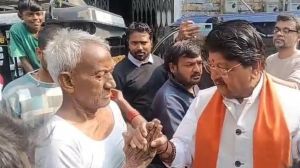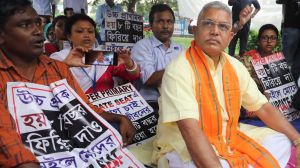View from the right
Given the massive popular uprising against King Gyanendra, the Organiser desists from coming out in his support but two reports in the weekly focus on the threat posed by the Maoists

Maoists versus Monarchy
Given the massive popular uprising against King Gyanendra, the Organiser desists from coming out in his support but two reports in the weekly focus on the threat posed by the Maoists. While commending the return of democracy in Nepal, writer Shyam Khosla warns that 8216;8216;it is not roses all the way8217;8217; because of the 8216;8216;machinations of the Maoists.8217;8217; Criticising CPM leader Sitaram Yechury for advocating the inclusion of Maoists in the interim government, Khosla says,8216;8216;Persuading Maoists to join the democratic stream is one thing, and to allow them to gatecrash into the power structure without giving up arms is quite another. In the event, democratic parties, weak and torn by internecine warfare as they are, may be helpless in the face of the Maoist who are not only well organised and have a single line of command but also have the power of the gun with them.8217;8217;
A constitutional monarchy 8216;8216;can be some sort of guarantee8217;8217; against the collapse of the system and Maoist takeover. However, since 8216;8216;the loss of faith in the royalty8217;8217; makes such a task difficult, the writer suggests 8216;8216;an effective constitutional mechanism to ensure that no monarch 8212; present or future 8212; will be in a position to undermine democratic institutions as was done by the King in 2002 and earlier by Indira Gandhi in 1975.8217;8217;
A sophisticated argument that makes it clear that given a choice between the monarchy and a people8217;s republic, the Sangh Parivar would clearly prefer the former.
Treading with caution
The second article by Arabinda Ghose is more circumspect. Pointing out that the Constituent Assembly may allow only a ceremonial role for the monarchy or abolish it altogether, Ghose says India may have to deal with a new regime in which 8216;8216;extremist Communists will have a larger say.8217;8217; How far this will pose a threat to India8217;s security remains to be seen, he says, refraining from projecting an alarmist picture just yet.
Silence over marad
The Organiser editorial attacks both the Congress and Communists for their 8216;8216;conspiracy of silence8217;8217; on the findings of the judicial commission set up to probe the communal violence that erupted in Marad, a village in Kerala, in May 2003. The Indian Express broke the story on the Commission8217;s report recently.
Both chief minister Ooman Chandy and former CM A.K. Antony claimed they had not seen or read even a line of the report. And the Communists are 8216;8216;playing coy8217;8217; too. 8216;8216;Instead of taking on the UDF government head-on at this crucial election campaign phase, the comrades are tarrying sic the matter by saying that they will study the report when they come to power,8217;8217; the editorial notes.
The Marad case had two aspects to it. First, eight Hindu fishermen 8212;8216;8216;reportedly attending a shakha8217;8217; 8212; were hacked to death on May 2, 2003 and the assailants took shelter in a local mosque. In retaliation, Muslims were evicted from the village en masse.
The Organiser maintains that 8216;8216;it was all too clear that the massacre conspiracy was hatched at the Masjid and the politicians did not want to enquire.8217;8217; It is also dismissive of the 8216;8216;curious post-massacre twist8217;8217; wherein 8216;8216;the RSS became the target of ire of the politicians for what they called the forced eviction of Muslims from the village.8217;8217;
It commends the Commission8217;s findings that 8216;8216; there are active bases of several terrorist organisations in Kerala, operating with foreign funds and direction and local support8217;8217; and its suggestion for further investigation into a 8216;8216;larger conspiracy8217;8217; behind the Marad incident.
8212; Compiled by Manini Chatterjee
- 01
- 02
- 03
- 04
- 05































